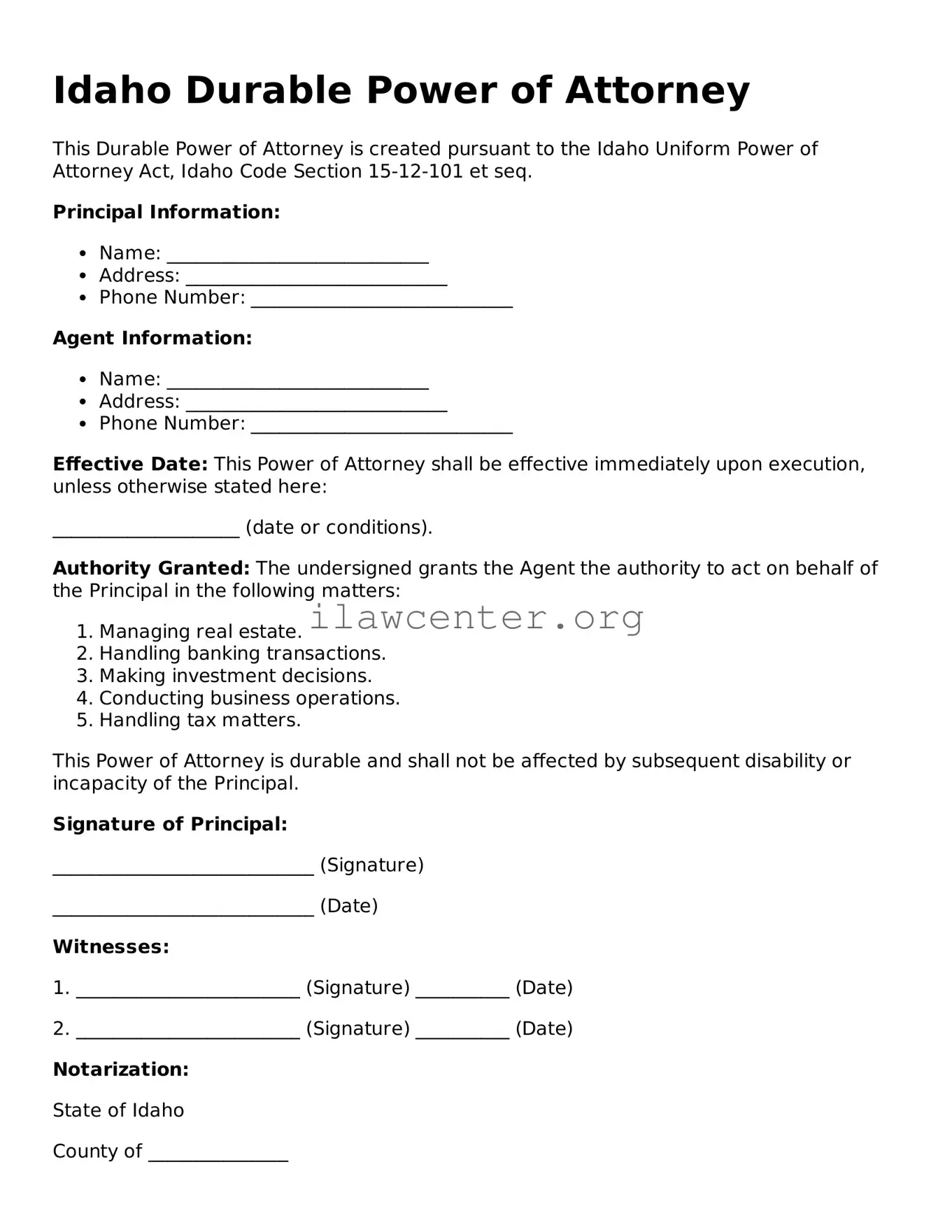Instructions on Utilizing Idaho Durable Power of Attorney
Filling out the Idaho Durable Power of Attorney form is an essential step for establishing a legal framework to manage financial and health-related decisions. Following these steps will help ensure the document is completed correctly.
- Obtain the Idaho Durable Power of Attorney form. You can find this form online through official state resources or legal document preparation services.
- Fill out your personal information at the top of the form. Include your full name, address, and date of birth.
- Identify your agent. Provide the full name, address, and contact information of the person you are designating as your agent to act on your behalf.
- Specify the powers you are granting to your agent. Review the options carefully and check the boxes next to the actions you wish to allow your agent to perform. These may include managing bank accounts, paying bills, or making healthcare decisions.
- If applicable, include any limitations or conditions regarding your agent's powers. Clearly state any restrictions or specific instructions you want to impose.
- Sign and date the form in the designated area. Ensure that your signature is consistent with how you normally sign documents.
- Have the form notarized. Most states, including Idaho, require the signature to be acknowledged by a notary public for the document to be valid.
- Make copies of the completed and notarized form. Keep the original in a safe place and distribute copies to your agent and any relevant institutions, like banks or medical providers.
By following these steps, the Idaho Durable Power of Attorney form can be filled out properly, allowing for the appropriate legal authority to manage significant decisions as needed.
